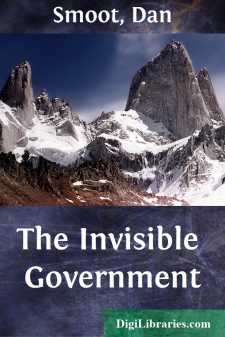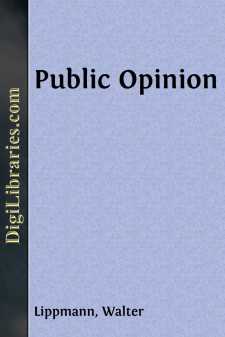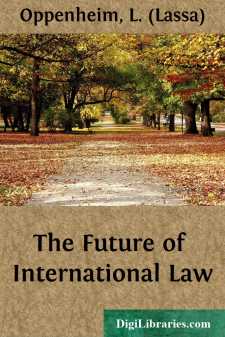Categories
- Antiques & Collectibles 13
- Architecture 36
- Art 48
- Bibles 22
- Biography & Autobiography 815
- Body, Mind & Spirit 144
- Business & Economics 28
- Children's Books 18
- Children's Fiction 14
- Computers 4
- Cooking 94
- Crafts & Hobbies 4
- Drama 346
- Education 58
- Family & Relationships 59
- Fiction 11833
- Games 19
- Gardening 17
- Health & Fitness 34
- History 1378
- House & Home 1
- Humor 147
- Juvenile Fiction 1873
- Juvenile Nonfiction 202
- Language Arts & Disciplines 89
- Law 16
- Literary Collections 686
- Literary Criticism 179
- Mathematics 13
- Medical 41
- Music 40
- Nature 179
- Non-Classifiable 1768
- Performing Arts 7
- Periodicals 1453
- Philosophy 65
- Photography 2
- Poetry 896
- Political Science 203
- Psychology 44
- Reference 154
- Religion 515
- Science 126
- Self-Help 85
- Social Science 82
- Sports & Recreation 34
- Study Aids 3
- Technology & Engineering 59
- Transportation 23
- Travel 463
- True Crime 29
Our website is made possible by displaying online advertisements to our visitors.
Please consider supporting us by disabling your ad blocker.
The Invisible Government
by: Dan Smoot
Categories:
Description:
Excerpt
FOREWORD
On May 30, 1961, President Kennedy departed for Europe and a summit meeting with Khrushchev[A]. Every day the Presidential tour was given banner headlines; and the meeting with Khrushchev was reported as an event of earth-shaking consequence.
It was an important event. But a meeting which was probably far more important, and which had commanded no front-page headlines at all, ended quietly on May 29, the day before President and Mrs. Kennedy set out on their grand tour.
On May 12, 1961, Dr. Philip E. Mosely, Director of Studies of the Council on Foreign Relations, announced that,
"Prominent Soviet and American citizens will hold a week-long unofficial conference on Soviet-American relations in the Soviet Union, beginning May 22."
Dr. Mosely, a co-chairman of the American group, said that the State Department had approved the meeting but that the Americans involved would go as "private citizens" and would express their own views.
The New York Times' news story on Dr. Mosely's announcement (May 13, 1961) read:
"The importance attached by the Soviet Union to the meeting appears to be suggested by the fact that the Soviet group will include three members of the communist party's Central Committee ... and one candidate member of that body....
"The meeting, to be held in the town of Nizhnyaya Oreanda, in the Crimea, will follow the pattern of a similar unofficial meeting, in which many of the same persons participated, at Dartmouth College last fall. The meetings will take place in private and there are no plans to issue an agreed statement on the subjects discussed....
"The topics to be discussed include disarmament and the guaranteeing of ... international peace, the role of the United Nations in strengthening international security, the role of advanced nations in aiding under-developed countries, and the prospects for peaceful and improving Soviet-United States relations.
"The Dartmouth conference last fall and the scheduled Crimean conference originated from a suggestion made by Norman Cousins, editor of The Saturday Review and co-chairman of the American group going to the Crimea, when he visited the Soviet Union a year and a half ago....
"Mr. Cousins and Dr. Mosely formed a small American group early last year to organize the conferences. It received financial support from the Ford Foundation for the Dartmouth conference and for travel costs to the Crimean meeting. This group selected the American representatives for the two meetings.
"Among those who participated in the Dartmouth conference were several who have since taken high posts in the Kennedy Administration, including Dr. Walt W. Rostow, now an assistant to President Kennedy, and George F. Kennan; now United States Ambassador to Yugoslavia...."
The head of the Soviet delegation to the meeting in the Soviet Union, May 22, 1961, was Alekesander Y. Korneichuk, a close personal friend of Khrushchev. The American citizens scheduled to attend included besides Dr. Mosely and Mr. Cousins:
Marian Anderson, the singer; Dean Erwin N. Griswold, of the Harvard Law School; Gabriel Hauge, former economic adviser to President Eisenhower and now an executive of the Manufacturers Trust Company; Dr. Margaret Mead, a widely known anthropologist whose name (like that of Norman Cousins) has been associated with communist front activities in the United States; Dr. A. William Loos, Director of the Church Peace Union; Stuart Chase, American author notable for his pro-socialist, anti-anti-communist attitudes; William Benton, former U.S. Senator, also well-known as a pro-socialist, anti-anti-communist, now Chairman of the Board of Encyclopaedia Britannica; Dr. George Fisher, of the Massachusetts Institute of Technology; Professor Paul M. Doty, Jr., of Harvard's Chemistry Department; Professor Lloyd Reynolds, Yale University economist; Professor Louis B. Sohn of the Harvard Law School; Dr. Joseph E. Johnson, an old friend and former associate of Alger Hiss in the State Department, who succeeded Hiss as President of the Carnegie Endowment for International Peace, and still holds that position; Professor Robert R. Bowie, former head of the State Department's Policy Planning Staff (a job which Hiss also held at one time), now Director of the Center for International Affairs at Harvard; and Dr. Arthur Larson, former assistant to, and ghost writer for, President Eisenhower....




